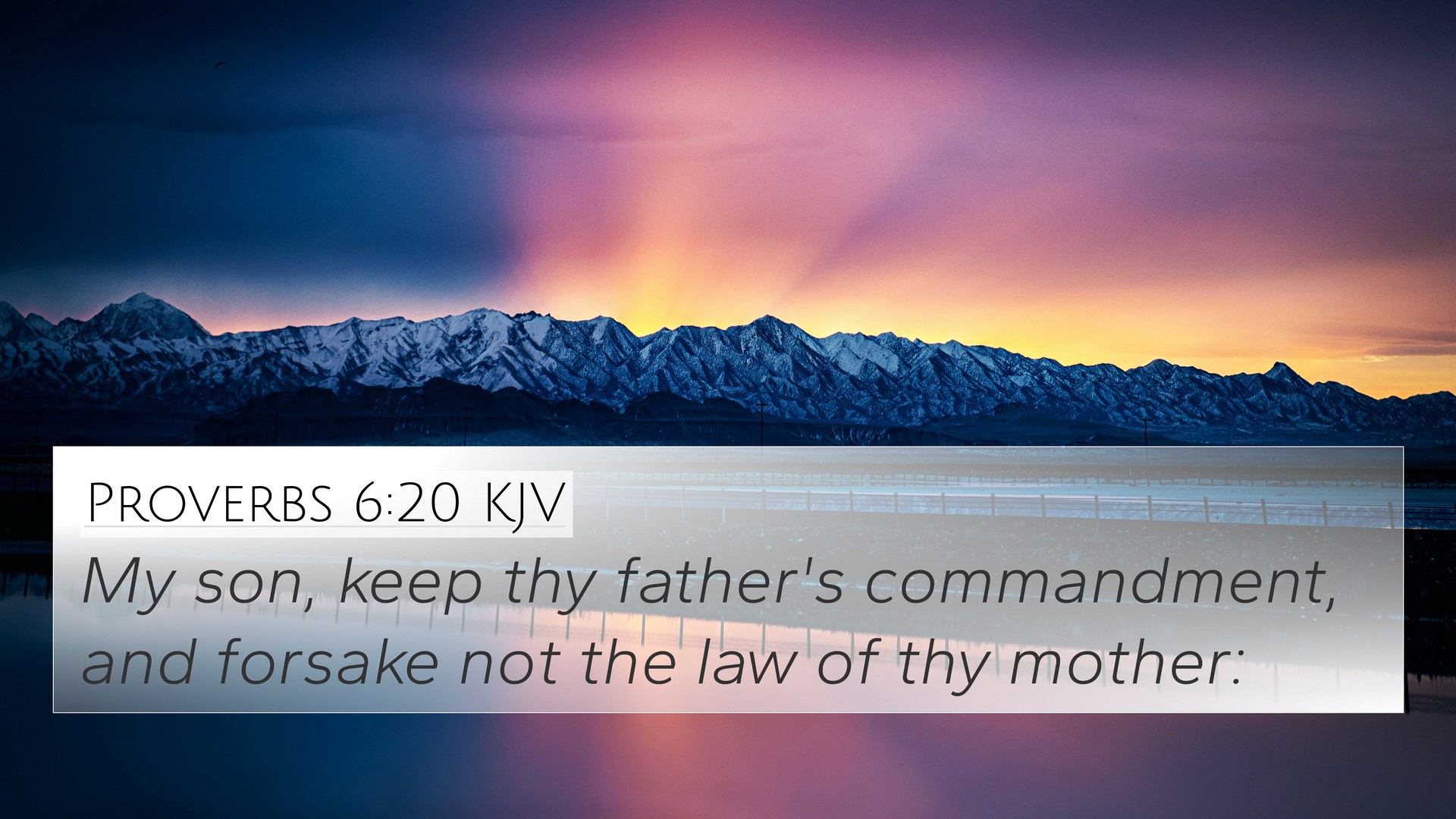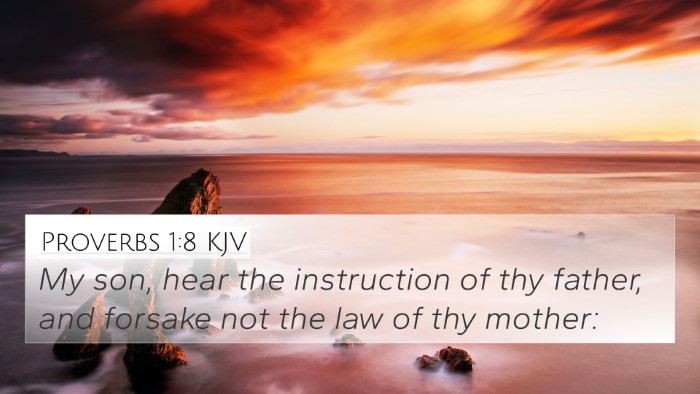Understanding Proverbs 6:20
Proverbs 6:20 states:
"My son, keep your father's command, and do not forsake the law of your mother."
This verse emphasizes the importance of adhering to parental guidance and the moral teachings that are often instilled in children. Let us explore its deeper meanings through insights from public domain commentaries.
Summary of Insights
Proverbs 6:20 serves as a reminder to children about the foundational role that parents play in their spiritual and moral education. Here’s a comprehensive analysis:
-
Parental Authority:
Matthew Henry emphasizes that children should honor and obey their parents' commandments. It reflects the divine order established by God, where parental guidance is rooted in love and intended for the child's well-being.
-
Importance of Instruction:
Albert Barnes points out that the law mentioned signifies the moral teachings parents provide, leading the child down a path of righteousness.
-
Commitment to Learning:
Adam Clarke reflects on the importance of embracing these teachings and committing them to memory, suggesting that they should guide the child's thoughts and actions throughout life.
Thematic Connections
This verse connects with numerous other biblical teachings that stress the significance of parental wisdom and obedience:
- Exodus 20:12: "Honor your father and your mother, that your days may be long in the land that the Lord your God is giving you."
- Ephesians 6:1: "Children, obey your parents in the Lord, for this is right."
- Proverbs 1:8: "Hear, my son, your father's instruction, and forsake not your mother's teaching."
- Colossians 3:20: "Children, obey your parents in everything, for this pleases the Lord."
- Proverbs 4:1: "Hear, O sons, a father's instruction, and be attentive, that you may gain insight."
- Deuteronomy 6:6-7: "And these words that I command you today shall be on your heart. You shall teach them diligently to your children..."
- Proverbs 23:22: "Listen to your father who gave you life, and do not despise your mother when she is old."
Cross-Referencing Biblical Texts
Understanding Proverbs 6:20 can be enriched through cross-referencing. Recognizing connections between various Bible verses enhances comprehension and provides a broader context:
- Bible Verse Cross-References: Matthew Henry and other scholars noted similar themes in Proverbs 1:8 and Ephesians 6:1, showcasing a consistent biblical principle regarding parental respect and obedience.
- Connecting Old and New Testament: The linkage between Proverbs and the New Testament teachings in Ephesians emphasizes the timeless relevance of respecting parental authority.
- Comparative Analysis: By comparing Proverbs 6:20 to Exodus 20:12, readers can see how the command to honor parents is consistently reiterated throughout Scripture.
Tools for Bible Cross-Referencing
Utilizing effective tools for cross-referencing enhances Bible study:
- Bible Concordance: A key resource for finding related verses.
- Bible Cross-Reference Guide: Lists scriptures in thematic order for comparative analysis.
- Cross-Reference Bible Study: Techniques for linking biblical texts for deeper understanding.
- Comprehensive Bible Cross-Reference Materials: Offers extensive lists of verses related to specific themes or teachings.
Inter-Biblical Dialogue
Engaging with the text of Proverbs 6:20 in concert with other biblical verses fosters a dialog between scripture, which can illuminate understanding:
- Identifying Connections: How do Proverbs 6:20 and Ephesians 6:1 communicate similar lessons regarding obedience?
- Comparative Study of Epistles: Comparing teachings found in the Pauline epistles with Proverbs reveals themes of familial relationships and moral conduct.
Conclusion
In Proverbs 6:20, the instruction to heed parental wisdom emphasizes the significance of familial structure, guidance, and moral integrity. Through diligent study and cross-referencing, one can deepen their understanding of this scripture and its implications for living a life aligned with biblical principles.









